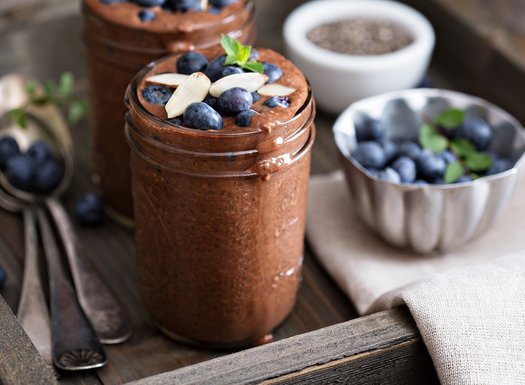|
You may feel tired, cold or that you've gained weight. Maybe your digestion seems a bit more “sluggish”. You may be convinced that your metabolism is slow. Why does this happen? Why do metabolic rates slow down? What can slow my metabolism? Metabolism includes all of the biochemical reactions in your body that use nutrients and oxygen to create energy. And there are lots of factors that affect how quickly (or slowly) it works, i.e. your “metabolic rate” (which is measured in calories). But don't worry – we know that metabolic rate is much more complicated than the old adage “calories in calories out”! In fact it's so complicated I'm only going to list a few of the common things that can slow it down. Examples of common reasons why metabolic rates can slow down:
We'll briefly touch on each one below and I promise to give you better advice than just to “eat less and exercise more”. Low thyroid hormones Your thyroid is the master controller of your metabolism. When it produces fewer hormones your metabolism slows down. The thyroid hormones (T3 & T4) tell the cells in your body when to use more energy and become more metabolically active. Ideally it should work to keep your metabolism just right. But there are several things that can affect it and throw it off course. Things like autoimmune diseases and mineral deficiencies (e.g. iodine or selenium) for example. Tip: Talk with your doctor about having your thyroid hormones tested. Your history of dieting When people lose weight their metabolic rate often slows down. This is because the body senses that food may be scarce and adapts by trying to continue with all the necessary life functions and do it all with less food. While dieting can lead to a reduction in the amount of fat it unfortunately can also lead to a reduction in the amount of muscle you have. As you know more muscle means faster resting metabolic rate. Tip: Make sure you're eating enough food to fuel your body without overdoing it. Your size and body composition In general, larger people have faster metabolic rates. This is because it takes more energy to fuel a larger body than a smaller one. However, you already know that gaining weight is rarely the best strategy for increasing your metabolism. Muscles that actively move and do work need energy. Even muscles at rest burn more calories than fat. This means that the amount of energy your body uses depends partly on the amount of lean muscle mass you have. Tip: Do some weight training to help increase your muscle mass. Which leads us to... Your activity level Aerobic exercise temporarily increases your metabolic rate. Your muscles are burning fuel to move and do “work” and you can tell because you're also getting hotter. Even little things can add up. Walking a bit farther than you usually do, using a standing desk instead of sitting all day, or taking the stairs instead of the elevator can all contribute to more activity in your day. Tip: Incorporate movement into your day. Also, exercise regularly. Lack of sleep There is plenty of research that shows the influence that sleep has on your metabolic rate. The general consensus is to get 7-9 hours of sleep every night. Tip: Try to create a routine that allows at least 7 hours of sleep every night. Recipe (Selenium-rich): Chocolate Chia Seed Pudding Serves 4 ½ cup Brazil nuts
2 cups water nut bag or several layers of cheesecloth (optional) ½ cup chia seeds ¼ cup unsweetened cacao powder ½ teaspoon ground cinnamon ¼ teaspoon sea salt 1 tablespoon maple syrup Blend Brazil nuts in water in a high-speed blender until you get smooth, creamy milk. If desired, strain it with a nut bag or several layers of cheesecloth. Add Brazil nut milk and other ingredients into a bowl and whisk until combined. Let sit several minutes (or overnight) until desired thickness is reached. Serve & Enjoy! Tip: Makes a simple delicious breakfast or dessert topped with berries.
0 Comments
This word “metabolism” is thrown around a lot these days. You know that if yours is too slow you might gain weight. But what exactly does this all mean? Well technically “metabolism” is the word to describe all of the biochemical reactions in your body. It's how you take in nutrients and oxygen and use them to fuel everything you do. Your body has an incredible ability to grow, heal, and generally stay alive. And without this amazing biochemistry you would not be possible. Metabolism includes how the cells in your body:
So when you put all of these processes together into your metabolism you can imagine that these processes can work too quickly, too slowly, or just right. Which brings us to the “metabolic rate”. Metabolic rate This is how fast your metabolism works and is measured in calories (yup, those calories!). The calories you eat can go to one of three places:
As you can imagine the more calories you burn as work or creating heat the easier it is to lose weight and keep it off because there will be fewer “leftover” calories to store for later. There are a couple of different ways to measure metabolic rate. One is the “resting metabolic rate” (RMR) which is how much energy your body uses when you're not being physically active. The other is the “total daily energy expenditure” (TDEE) which measures both the resting metabolic rate as well as the energy used for “work” (e.g. exercise) throughout a 24-hour period. What affects your metabolic rate? In a nutshell: a lot! The first thing you may think of is your thyroid. This gland at the front of your throat releases hormones to tell your body to “speed up” your metabolism. Of course, the more thyroid hormone there is the faster things will work and the more calories you'll burn. But that's not the only thing that affects your metabolic rate. How big you are counts too! Larger people have higher metabolic rates; but your body composition is crucial! As you can imagine muscles that actively move and do work need more energy than fat does. So the more lean muscle mass you have the more energy your body will burn and the higher your metabolic rate will be. Even when you're not working out. This is exactly why weight training is often recommended as a part of a weight loss program. Because you want muscles to be burning those calories for you. The thing is, when people lose weight their metabolic rate often slows down which you don't want to happen. So you definitely want to offset that with more muscle mass. Aerobic exercise also temporarily increases your metabolic rate. Your muscles are burning fuel to move so they're doing “work”. The type of food you eat also affects your metabolic rate! Your body actually burns calories to absorb, digest, and metabolize your food. This is called the “thermic effect of food” (TEF). You can use it to your advantage when you understand how your body metabolizes foods differently. Fats, for example increase your TEF by 0-3%; carbs increase it by 5-10%, and protein increases it by 15-30%. By trading some of your fat or carbs for lean protein you can slightly increase your metabolic rate. Another bonus of protein is that your muscles need it to grow. By working them out and feeding them what they need they will help you to lose weight and keep it off. And don't forget the mind-body connection. There is plenty of research that shows the influence that things like stress and sleep have on the metabolic rate. This is just the tip of the iceberg when it comes to metabolism and how so many different things can work to increase (or decrease) your metabolic rate. Recipe (Lean Protein): Lemon Herb Roasted Chicken Breasts Serves 4 2 lemons, sliced
1 tablespoon rosemary 1 tablespoon thyme 2 cloves garlic, thinly sliced 4 chicken breasts (boneless, skinless) dash salt & pepper 1 tablespoon extra virgin olive old Preheat oven to 425F. Layer ½ of the lemon slices on the bottom of a baking dish. Sprinkle with ½ of the herbs and ½ of the sliced garlic. Place the chicken breasts on top and sprinkle salt & pepper. Place remaining lemon, herbs and garlic on top of the chicken. Drizzle with olive oil. Cover with a lid or foil. Bake for 45 minutes until chicken is cooked through. If you want the chicken to be a bit more “roasty” then remove the lid/foil and broil for another few minutes (watching carefully not to burn it). Serve & enjoy! Tip: You can add a leftover sliced chicken breast to your salad for lunch the next day! It’s not easy to stay motivated while you’re trying to lose weight. You’re surrounded by temptations, and everyone seems to be able to eat the things you can’t enjoy anymore. However, there are tricks that can help you stay on the path to losing weight. Try these tips to stay motivated as you shed those extra pounds: 1. Dispose of your big clothes. Most people who diet on a regular basis have clothes in all sizes. You probably have a closet filled with small, medium, and large clothes that you wear depending on your weight.
2. Give yourself small rewards. Research shows that simple rewards can help you stay motivated. Implement a system that gives you rewards at various points along the way, so you can celebrate your wins, even when these wins are incremental. You can use a simple points system or reward chart to keep track.
3. Hang up your inspiration. If you’re desperately trying to recreate an old photo of your younger self or have a skinny outfit you want to wear again, display this inspiration. Choose only one or two items that inspire you the most, and stay focused on them.
4. Avoid using the scale every day. Research shows that it’s normal for your weight to fluctuate by several pounds each day. If you weigh yourself every day, you can get discouraged. Instead, use the scale less frequently and focus on how you feel or how your clothes fit.
5. Post a daily photo. Unlike a daily scale routine, a daily photo can help motivate you. You can use social media or store the photos in a cloud.
By staying motivated as you lose weight, you’ll make the process easier. You’ll be able to maintain your enthusiasm. The right inspiration and motivation will keep you focused on your weight loss goals and encourage you all along the way to success. |
Archives
November 2022
Categories
All
|





 RSS Feed
RSS Feed